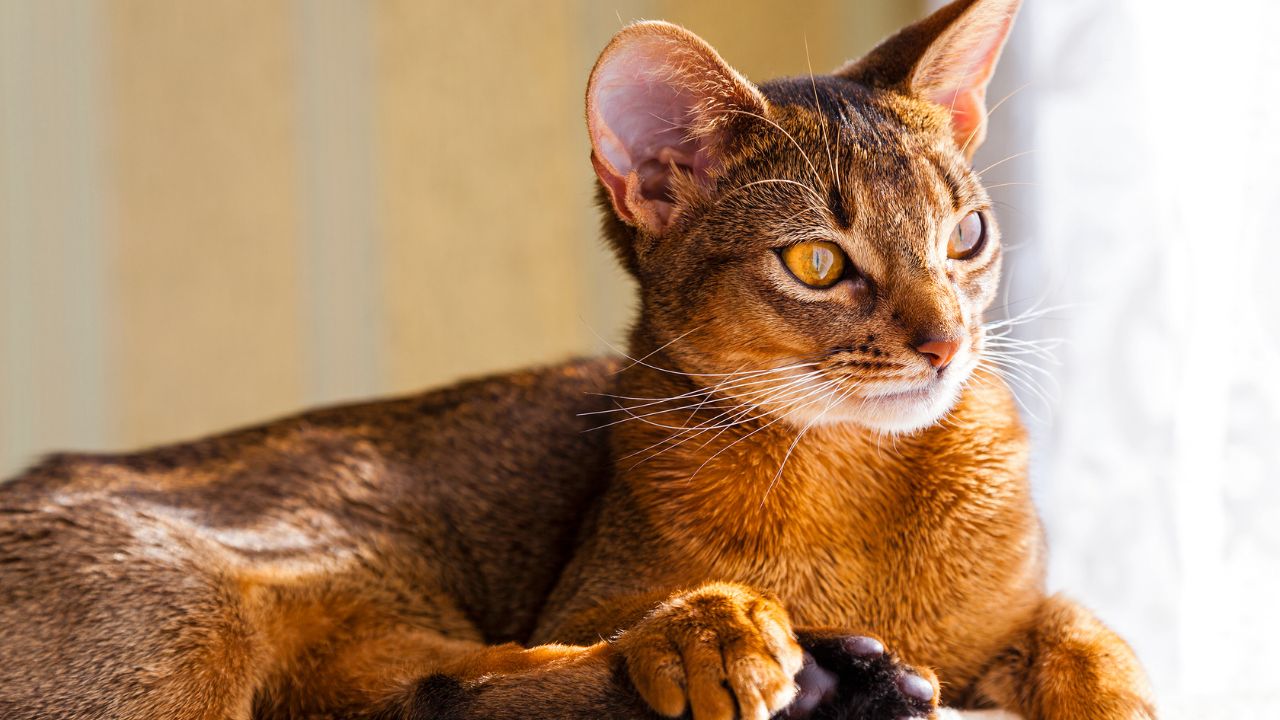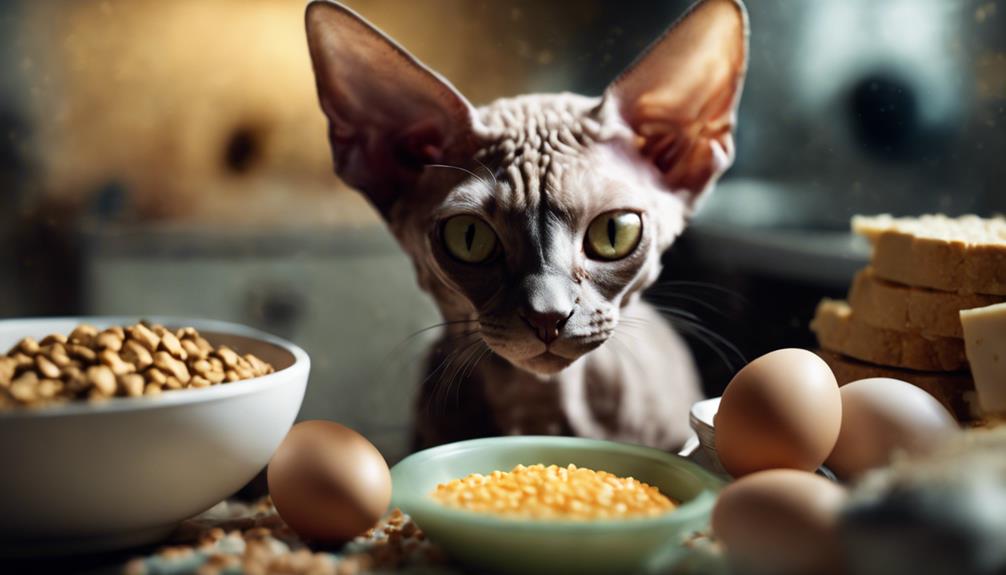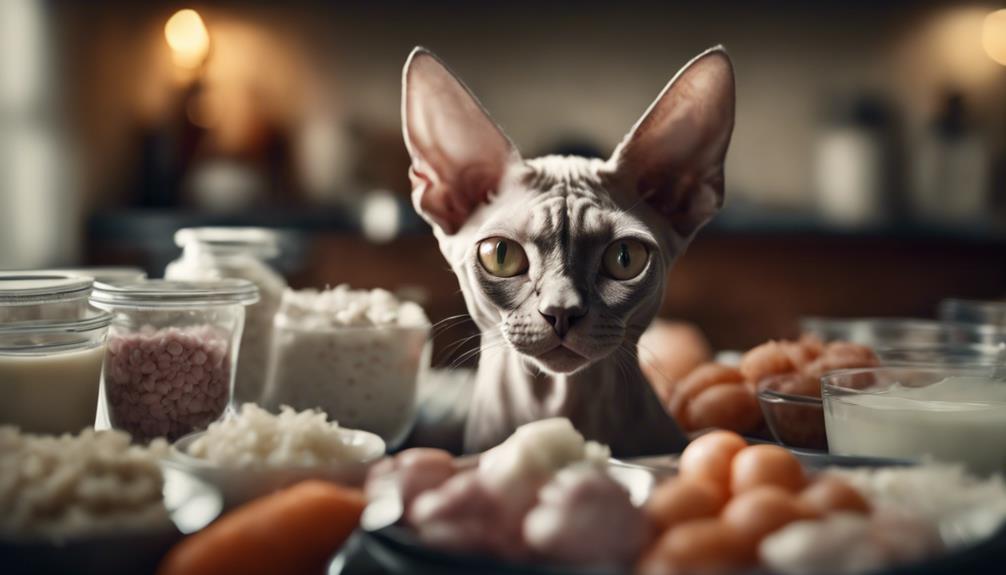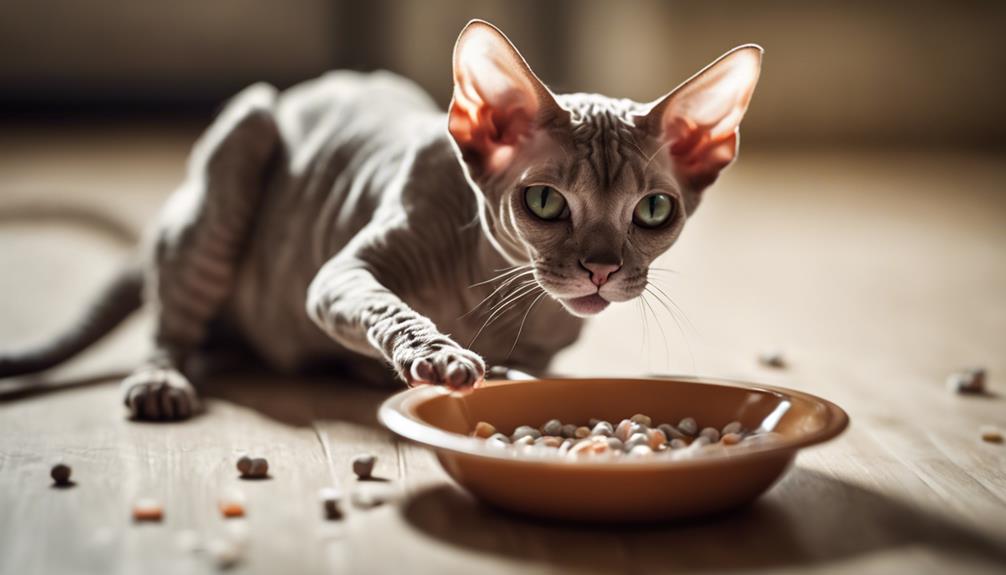As a cat lover, I know that cats come in different shapes, sizes, and breeds. One of the most popular breeds is the Abyssinian cat. Abyssinian cats are known for their unique coat and playful personalities. However, as a cat owner, one question that often comes to mind is when do Abyssinian cats stop growing?
After doing some research, I found that the answer to this question is not as straightforward as one might think. While cats are generally considered adults at 12 months old, they do not stop growing at this time. A cat may not reach its potential size until 18 months to 4 years old, depending on a number of factors including breed. When it comes to Abyssinian cats, there are several factors that may influence their growth rate or final size.
In this article, I will be exploring when Abyssinian cats stop growing and what factors may influence their growth rate. I will also be discussing some common myths and misconceptions about Abyssinian cats and their growth. Whether you are a new or experienced cat owner, understanding when your Abyssinian cat will stop growing is important for their overall health and well-being.
Abyssinian Cat Growth Stages
Kitten Stage
During the kitten stage, Abyssinian cats grow rapidly. They are born weighing only a few ounces and will double their weight within the first week. By the end of the first month, they will weigh around one pound. At this stage, they are very playful and curious, and they need a lot of attention and care from their owners.
They will start to develop their personalities and preferences, and it’s important to provide them with a safe and stimulating environment to explore.
At around 4 months old, Abyssinian kittens will start to lose their baby teeth and their permanent teeth will start to grow in. This is a good time to start introducing them to dry food and to schedule their first veterinary checkup.
Adolescent Stage
During the adolescent stage, Abyssinian cats continue to grow, but at a slower rate. They will reach their full height and length at around 1 year old, but they may continue to gain weight and muscle mass until they are 2-3 years old.
At this stage, they are still very active and playful, and they need plenty of exercises and mental stimulation to keep them healthy and happy.
It’s important to continue providing your Abyssinian cat with a high-quality diet and regular veterinary checkups to ensure that they are growing and developing properly. This is also a good time to start training them and socializing them with other cats and people.
Adult Stage
Once Abyssinian cats reach adulthood, they will have reached their full size and weight. Female Abyssinians typically weigh between 6-8 pounds, while males can weigh up to 12 pounds. They will continue to be active and playful throughout their lives, and they may develop some health issues as they age.
Regular exercise, a healthy diet, and regular veterinary checkups can help keep your Abyssinian cat healthy and happy for many years to come.

Factors Affecting Abyssinian Cat Growth
Genetics
As with many other cat breeds, genetics play a significant role in the growth rate and final size of Abyssinian cats. The breed has a unique genetic variation of the tabby coat, which can affect their growth rate. According to Pets Notion, the average size of an adult Abyssinian cat is around 8-10 pounds. However, some Abyssinians may grow larger or smaller depending on their genetic makeup.
It’s important to note that genetics alone do not determine an Abyssinian cat’s growth rate. Other factors such as diet and physical activity also play a significant role.
Diet and Nutrition
The diet and nutrition of an Abyssinian cat can significantly impact their growth rate and final size. According to The Spruce Pets, Abyssinians require a diet that is high in protein and low in carbohydrates. This is because they are an active breed that requires a lot of energy to maintain their muscle mass and overall health.
It’s important to feed your Abyssinian cat a balanced and nutritious diet that meets their unique needs. Consult with your veterinarian to determine the best diet for your cat.
Physical Activity
Abyssinian cats are an active breed that require a lot of physical activity to maintain their muscle mass and overall health. According to The Cat Fanciers’ Association, Inc, Abyssinians enjoy playing and interacting with their owners. They also enjoy climbing and exploring their environment.
It’s important to provide your Abyssinian cat with plenty of opportunities for physical activity. This can include playing with toys, climbing on cat trees, and going for walks on a leash.
When Do Abyssinian Cats Stop Growing?
Average Growth Timeline
As an Abyssinian cat owner, I have observed that my cat stopped growing at around 12 months old. However, according to All About Dogs & Cats, some Abyssinian cats may continue to grow until they are 4 years old. The growth timeline varies from cat to cat and is influenced by various factors.
Signs of Maturity
When Abyssinian cats reach maturity, they will have reached their maximum length and size. However, they may continue to fill out and gain weight as their muscles develop. You may notice that your cat’s body becomes more muscular and toned as they mature.
Factors That Affect Growth Rate
Several factors can affect an Abyssinian cat’s growth rate. According to All About Dogs & Cats, breed, genetics, health, and diet all play a role in a cat’s growth rate. Providing your cat with a healthy and balanced diet and regular exercise can help ensure that they reach their full growth potential.
Overall, the growth timeline of Abyssinian cats can vary from cat to cat. However, by providing your cat with proper care and attention, you can help ensure that they reach their full growth potential and live a healthy and happy life.
Top Takeaways
After researching and analyzing various sources, here are the top takeaways about when Abyssinian cats stop growing:
- Abyssinian cats are medium-sized cats that usually reach their full size by the time they are 1 to 2 years old.
- Factors such as genetics, diet, and environment can influence their growth rate and final size.
- While most Abyssinian cats stop growing by age 2, some may continue to grow until they are 4 years old.
- Proper feeding and exercise can help ensure that Abyssinian cats reach their full potential in terms of size and overall health.
- Regular grooming and oral care are important for maintaining the health and appearance of Abyssinian cats, even though they have short coats and shed minimally.
Overall, if you are considering adopting or caring for an Abyssinian cat, it is important to keep in mind that they are active, intelligent, and social animals that require attention and stimulation to thrive. By providing them with a healthy diet, plenty of exercise, and regular grooming and veterinary care, you can help ensure that they live a happy and healthy life.




